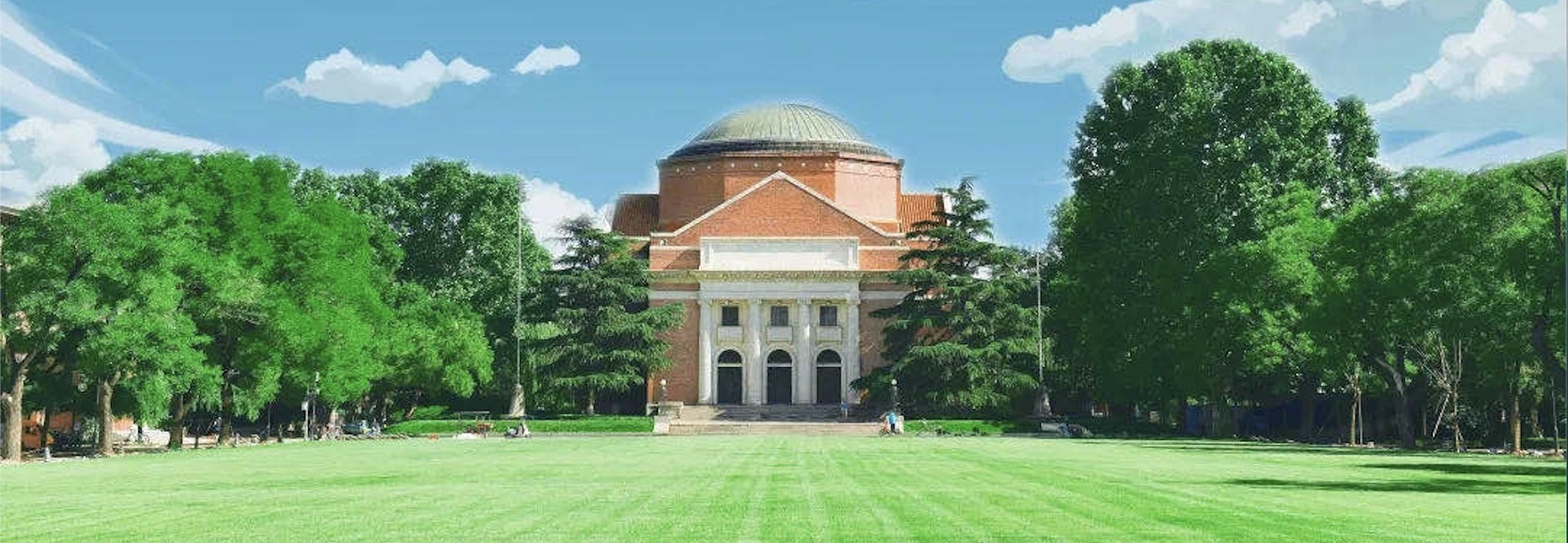On July 15, under the leadership of Professor Li Xiguang from Tsinghua University's School of Journalism and the Director of Pakistani Culture and Communication Center, the first phase of the three-week "China-Pakistan Expedition Gandhara Caravan Class" successfully completed its research and teaching plan. The expedition team, composed of 44 Chinese and Pakistani students and teachers, underwent two days of training at Tsinghua University from July 15 to 16 before departing from Urumqi on July 17. The group followed the footsteps of Professor Ahmad Hasan Dani, a longtime friend of the Chinese people and the founder of the Taxila Institute of Asian Civilizations, Quaid-i-Azam University Islamabad Pakistan, led the UNESCO Silk Road Comprehensive Investigation Team onto this magical land China in 1990 and conducted classes, research, and writing along the ancient cities buried under the Taklamakan Desert's northern route. On July 25, the Caravan Class arrived in the Wakhan Corridor, where a concluding meeting for the first phase of the investigation and classes was held at the Ming Tie Gai Mountain Pass.
Since establishing the "Caravan Class on the Road" in 1999 at Tsinghua University, Professor Li Xiguang has led students annually to the Himalayas, Siberia, and the West to study, attend classes, conduct interviews, and write. The Caravan Class has embarked on 29 expeditions, with over 1,000 students participating.
This Caravan Class invited four internationally renowned Pakistani Gandhara Buddhist art archaeologists: Professor Ghani-ur-Rahman, the Director of the Asia Civilization Research Institute at QAU (Quaid-i-Azam University), former Director Professor Muhammad Ashraf Khan, Dr. Mueezuddin Hakal and Dr. Sadeed Arif. These professors provided on-site explanations of artistic and Buddhist archaeological culture to the students throughout, teaching about Gandhara Buddhism and the exchange and dissemination of culture with China at various historical sites, including the Ancient City of Jiaohe, the Ancient City of Gaochang, the Bezeklik Caves, the Kizil Caves, and Zhaoguli Buddhist Temple.
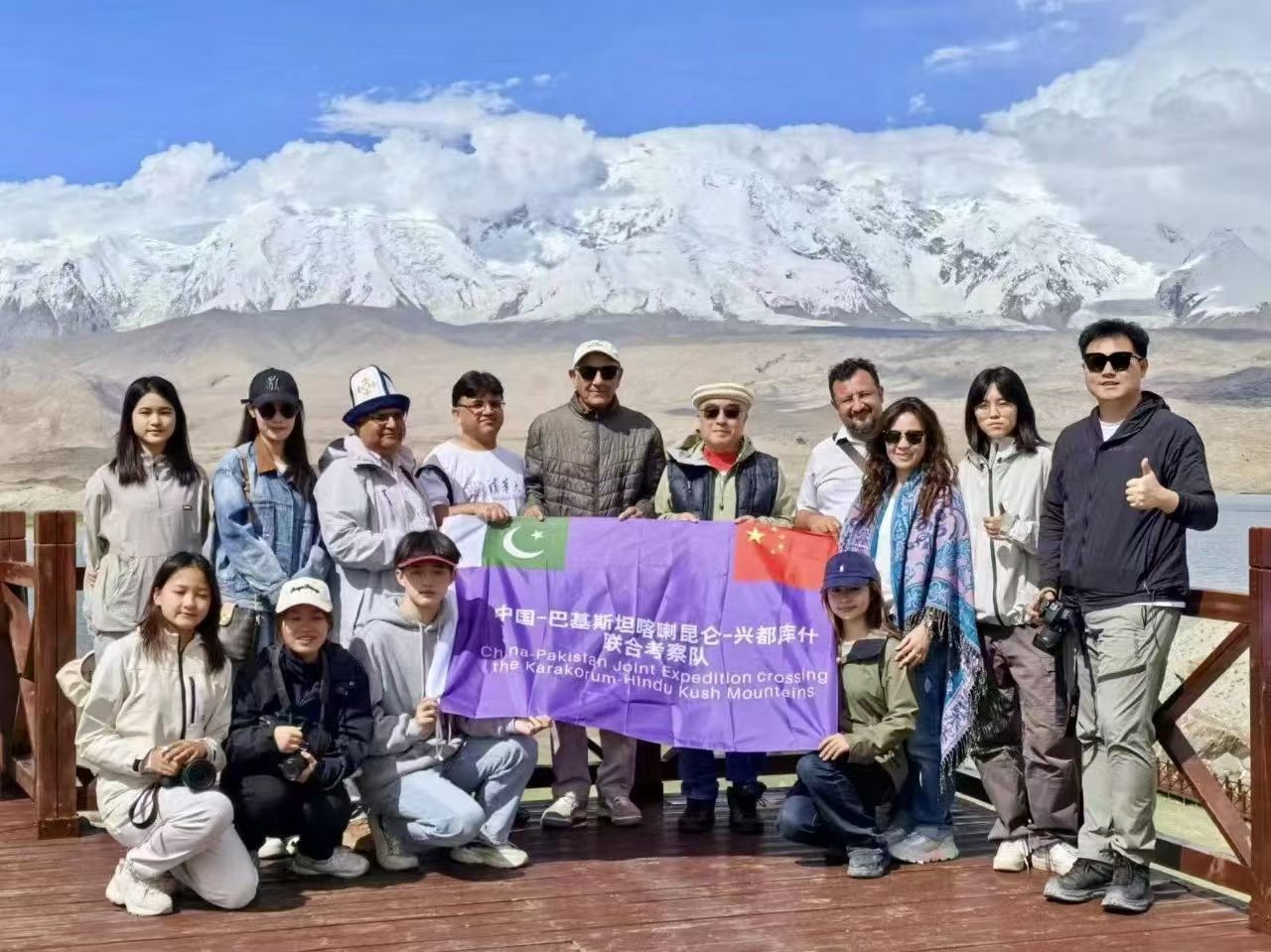
"It is a great honour for me to be part of the expedition organised by Prof. Li Xiguang of China's prestigious Tsinghua University. Prof. Ahmad Hasan Dani always taught us the importance of China and Central Asia as the main source of our culture. During the trip, I realised while travelling in China is that when Gandhara was flourishing as a Civilisation, Chinese pilgrims travelled there to study it, and when it was declining, the Chinese very responsibly took the responsibility to continue Buddhist, it's art and architecture in China and passed it further east. Thus, China not only passed us ancient culture but also preserved and protected it when we started losing it. Thus, we should see to China as the custodian of our past, present, and future cultures," Professor Ghani-ur-Rahman stated.
Professor Muhammad Ashraf Khan remarked, "This expedition visited several cave sites in Bezeklik and Kizil, appreciating the Buddhist mural arts displayed there, including images of the Thousand Buddhas, Bodhisattvas, Maitreya, and stories from Buddhist scriptures, which share similarities with those found in Gandhara, Pakistan. These caves played an important role in the transmission of Central Asian art and Buddhism from Gandhara to China along the Silk Road (from the 3rd to the 8th centuries). Professor Li Xiguang plays an important role in promoting the preservation of Pakistan's Buddhist cultural heritage."
Dr. Mueezuddin Hakal said, "At the Urumqi Museum and the Turpan Museum, we witnessed a rich collection of relics and Buddhist sites. I was particularly pleased to see that Chinese students exhibited a keen interest in their country's cultural heritage, and I believe they will play a key role in the protection and maintenance of cultural heritage in the future. I hope such investigatory activities can be expanded to other universities in China so that young Chinese people can gain a deeper understanding of their country's colourful cultural heritage."
Dr. Sadeed Arif commented, "This academic trip deepens our understanding of history and shows how Buddhism spread from the Gandhara region to Central Asia during the Kushan era and continued into the medieval period, while the Gandhara region gradually declined around the 5th century. There is a noticeable difference between typical Gandhara artworks in various museums and local ancient artworks. Many coins from the Gandhara region found in Xinjiang demonstrate that there was once active trade between Gandhara and Xinjiang."
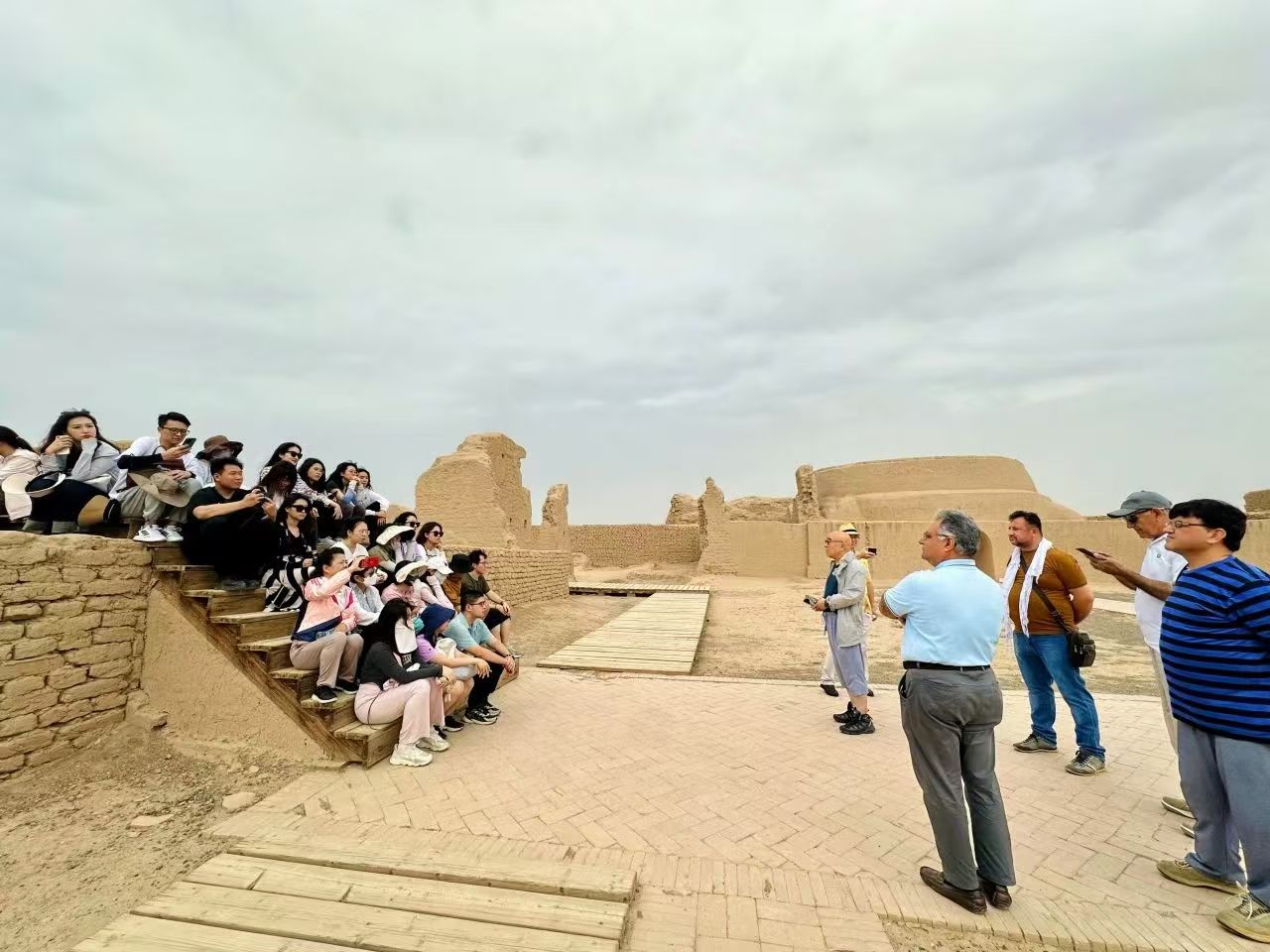
"The Caravan Class on the Road" is the only national-level first-class undergraduate social practice course at Tsinghua University and is also recognized as an exemplary course by the Ministry of Education. This year, it invited Professor Li Pei from the School of Journalism and Communication at Southwest University of Political Science and Law, Teacher Zuo Shuguang from Chongqing Television Station, and Professor Wu Mei from the University of Macau to accompany and guide the students. Professor Li Pei stated that since 2011, Southwest University of Political Science and Law has participated in the Caravan Class, and its unique teaching model has opened up new horizons of knowledge for the students, representing the most vivid and cutting-edge innovation in journalism education. Students have deeply interacted with the four Pakistani professors, gaining insight into the exchanges and collisions of different cultures and thoughts in a globalized context. This cross-cultural learning allows students to examine the essence of news communication from various perspectives, expanding their international horizons and profoundly engaging in research to cultivate talents in global communication.
Professor Wu Mei mentioned that for a long time, our scholarship has been deeply influenced by the knowledge hegemony of the West, often referencing Greece. At the same time, there are very few opportunities for direct dialogue and mutual learning among non-Western scholars. Research on Southern countries is usually based on Western literature and knowledge systems, lacking insight and critical examination of Western interests and positions. In the Caravan Class, the four Pakistani scholars shared many of their observations and opinions, showcasing their insights and opening up new horizons of knowledge for us.
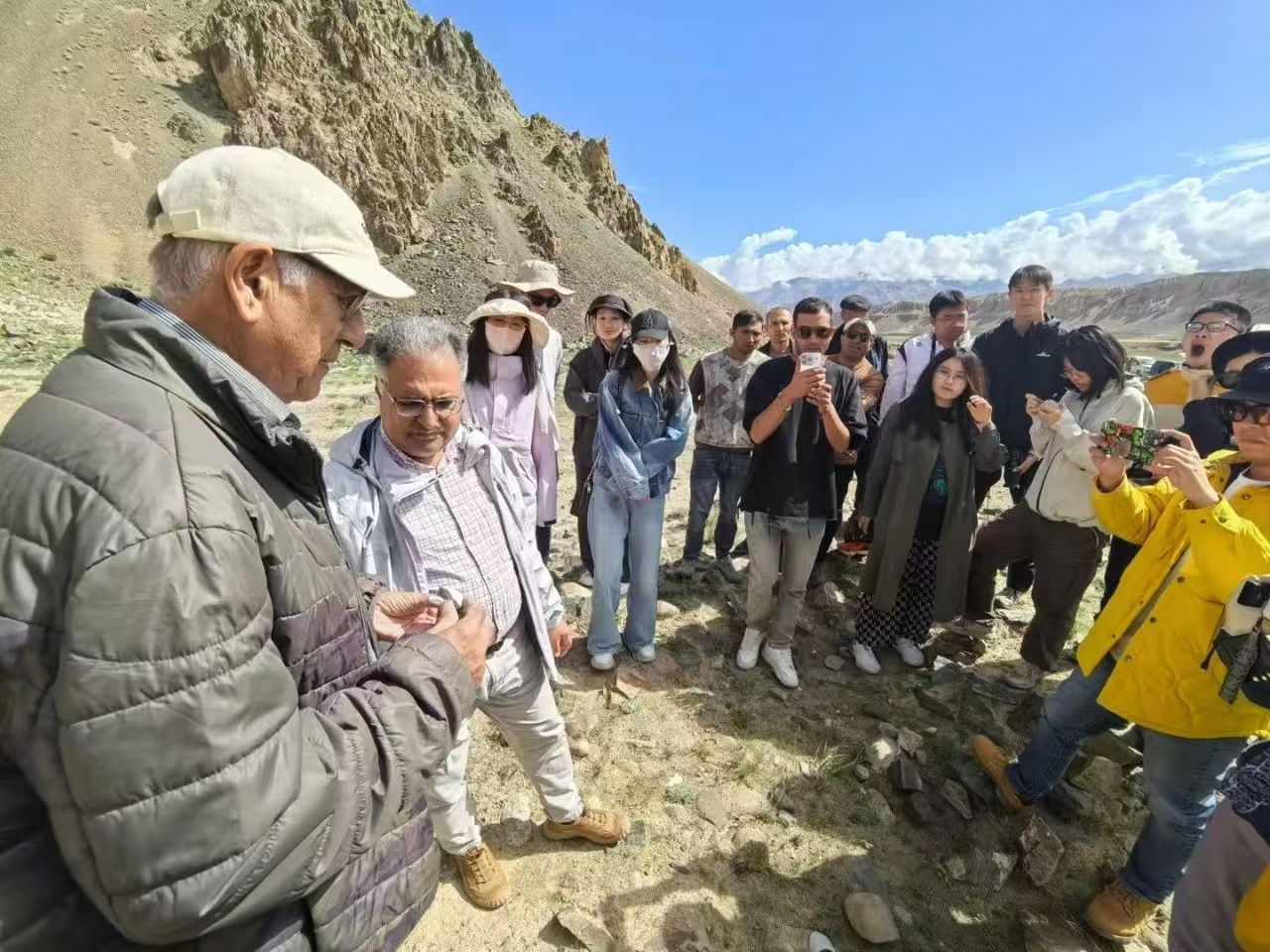
The Caravan Class offers students a unique opportunity to conduct field research, delve into reading and writing, and explore the intricate historical dynamics of the Silk Road and the realities of cross-border cultural exchanges. This distinctive approach greatly inspires students, equipping them with a comprehensive understanding of the 'Belt and Road' policy that is unparalleled in traditional classroom settings.
The students participating in the Caravan Class come from all walks of life. Tsinghua University undergraduate Zhang Baiyi said, "Traveling with the four Pakistani professors has greatly benefited me. In the museums, I gained a comprehensive understanding of various artefacts and had the fortune to hear the professors' profound interpretations of these relics. The professors even discovered elements reminiscent of Pakistan within some artefacts. Under the guidance of the four professors, the complete scenes of Buddhist architecture and the lives of monks seemed to come alive before my eyes, allowing for a deeper appreciation of the historical context behind the ancient city ruins."
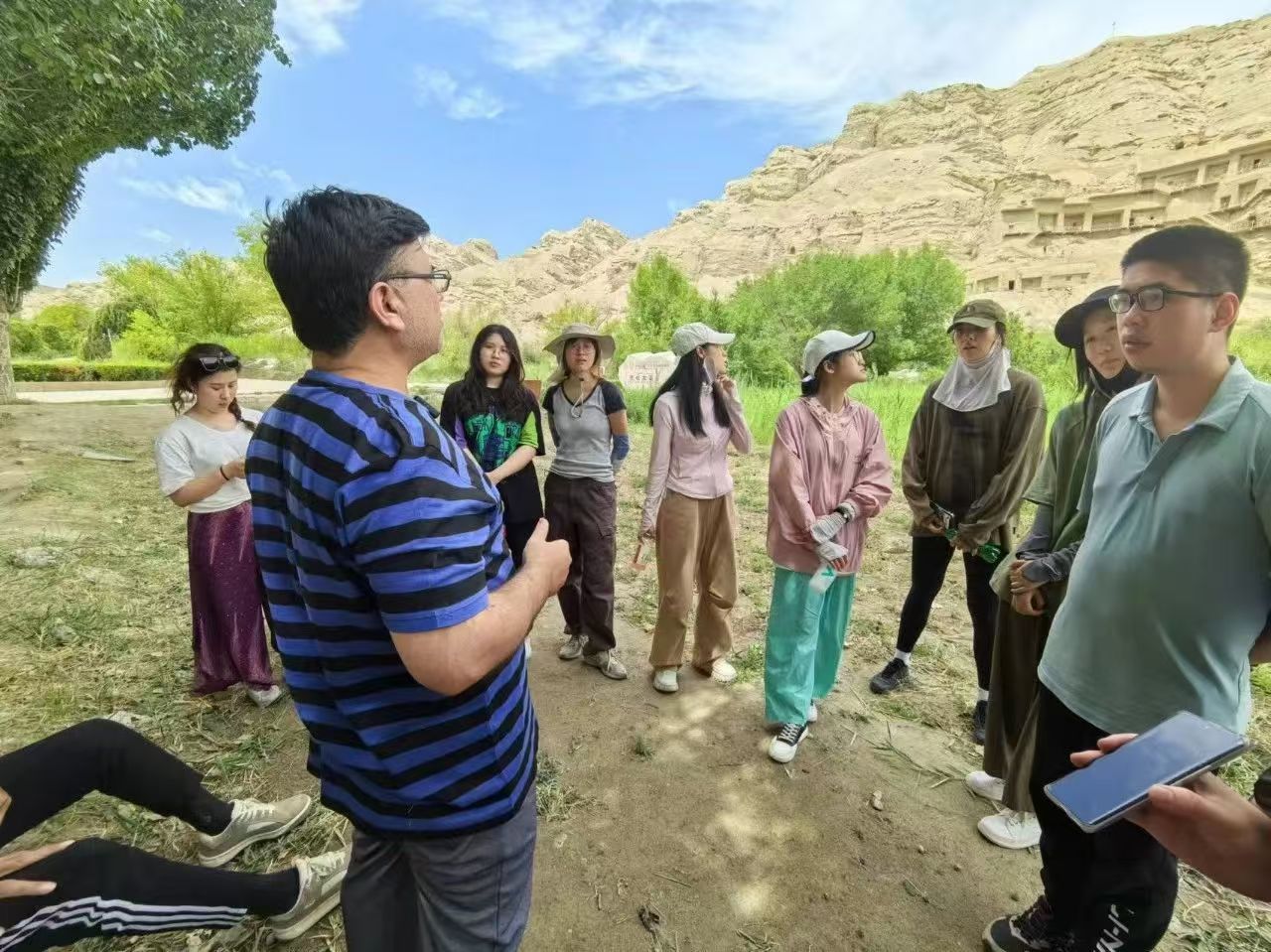
Hada, a Renmin University of China doctoral student, hails from Inner Mongolia. He mentioned that this expedition of the Western areas, retracing the footsteps of great pilgrims such as Xuanzang and Huichao, holds significant practical significance. Whether advancing research on China-Pakistan relations or his study of the Baltistan caravan's route to Xinjiang, it has crucial practical implications. Especially under the guidance and insights of four top archaeologists from Pakistan, it has provided unprecedented understanding and profound insights into the historical relics of Southern Xinjiang, Gandhara Buddhist art, and Pakistan's ancient and modern history.
Xue Yuan, an undergraduate student from the School of Journalism and Communication at Southwest University of Political Science and Law, is also a native of Xinjiang. The Caravan Class has given her a more authentic and profound understanding of her hometown. She said that during the investigation, she encountered many women and children from Xinjiang of various backgrounds and ages. There were young ethnic women leaders who travelled from Kashgar to Urumqi for training, as well as retired nurses coming to Turpan for sand therapy. What they all shared was a pursuit and belief in a better life. The training for these ethnic women leaders is organized free of charge by the government to help them speak Mandarin well and serve effectively as grassroots leaders. This reflects the love ethnic women have for a better life and highlights the attention and care that the Party and government have for the rights and welfare of women and children.
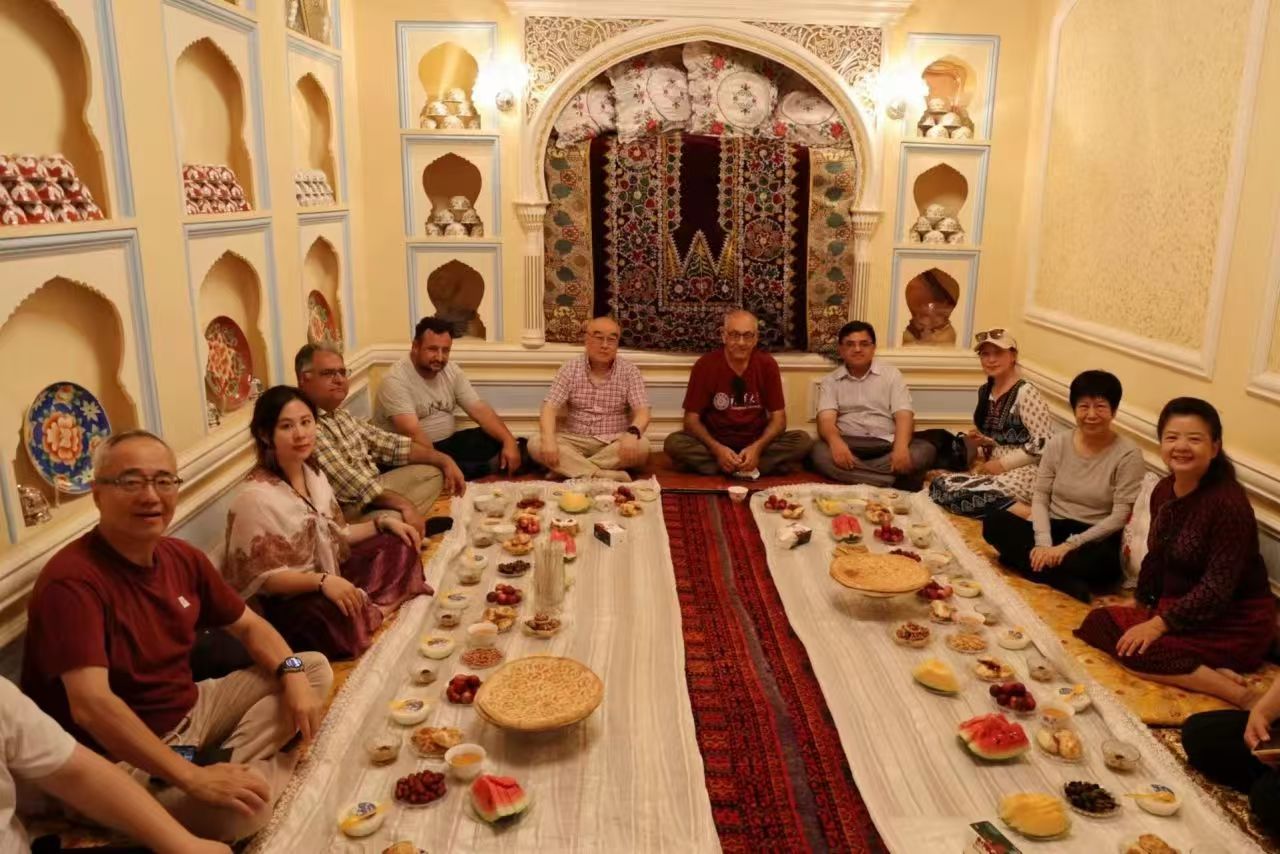
Chen Xiaolin, an undergraduate from the Asian Studies College of Beijing Foreign Studies University, stated, "This year, I followed the Caravan Class and traveled thousands of kilometers along the ancient Silk Road, exploring numerous Buddhist sites and gaining a new understanding of Xinjiang. The four internationally renowned Pakistani professors engaged with us as we looked around, and their detailed explanations helped me realize the extremely close religious and cultural connections between Pakistan and Xinjiang throughout history. As Professor Ghnai said "Many aspects of Gandhara culture that have disappeared in Pakistan have been inherited and developed in Xinjiang", many sites and murals we visited along the Caravan Class route clearly reflect the artistic style of Gandhara, illustrating the mutual influence of civilizations throughout our journey."
Reporter: Wong Wai Chi
